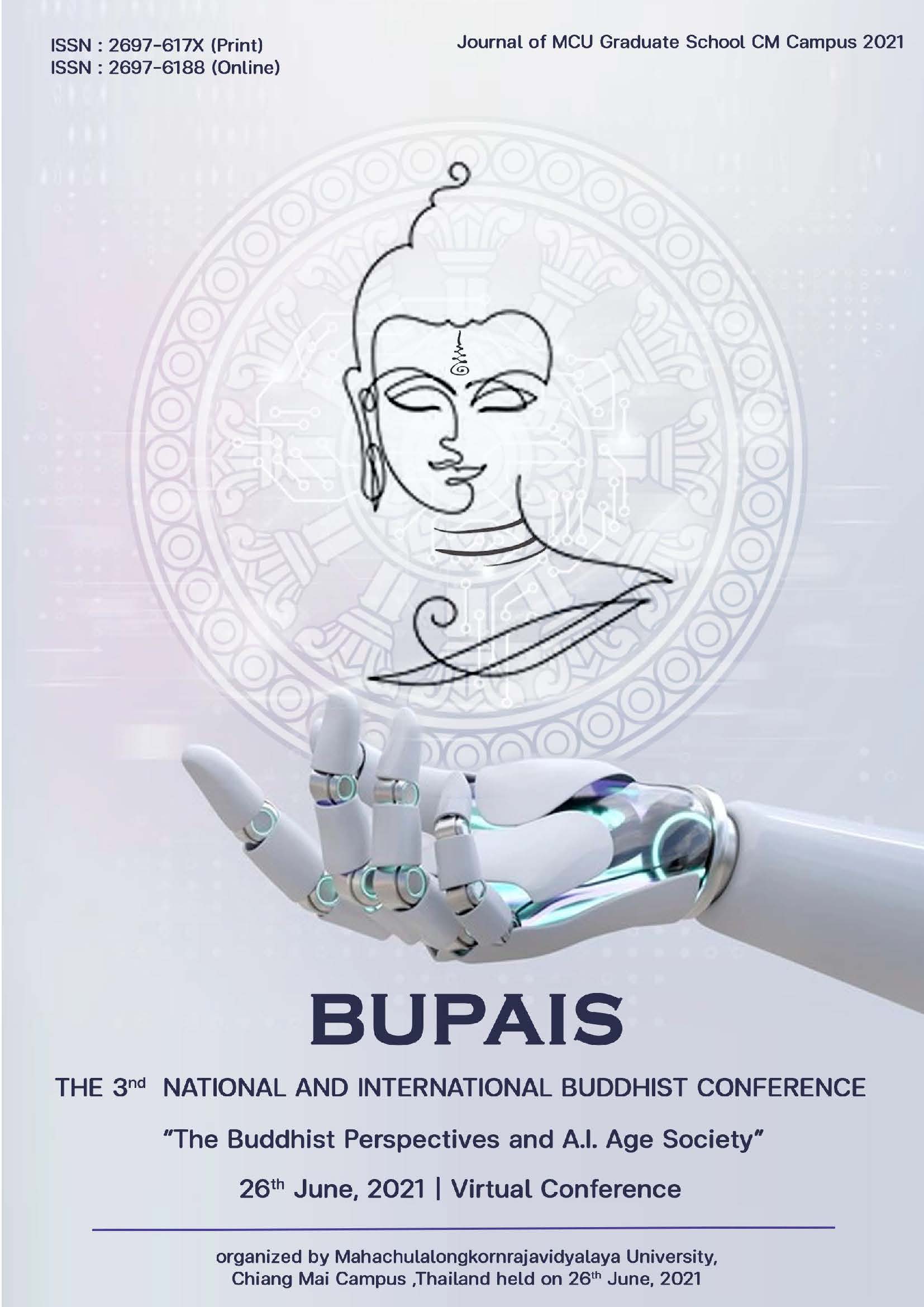การอนุรักษ์ประเพณีวัฒนธรรมล้านนาของเยาวชนในหมู่บ้านดงป่างิ้ว ตำบลมะขุนหวาน อำเภอสันป่าตอง จังหวัดเชียงใหม่
บทคัดย่อ
การวิจัยเรื่อง “การอนุรักษ์ประเพณีวัฒนธรรมล้านนาของเยาวชนในหมู่บ้านดงป่างิ้ว ตำบลมะขุนหวาน อำเภอสันป่าตอง จังหวัดเชียงใหม่” มีวัตถุประสงค์ 3 ประการคือ 1) เพื่อศึกษาการอนุรักษ์ประเพณีวัฒนธรรมล้านนาของเยาวชนหมู่บ้านดงป่างิ้ว ตำบลมะขุนหวาน อำเภอสันป่าตอง จังหวัดเชียงใหม่ 2) เพื่อศึกษาการสร้างอัตลักษณ์ทางประเพณีวัฒนธรรมการอนุรักษ์ประเพณีวัฒนธรรมล้านนาของเยาวชนหมู่บ้านดงป่างิ้ว ตำบลมะขุนหวาน อำเภอสันป่าตอง จังหวัดเชียงใหม่ 3) เพื่อวิเคราะห์รูปแบบการอนุรักษ์ประเพณีวัฒนธรรมล้านนาการอนุรักษ์ประเพณีวัฒนธรรมล้านนาของเยาวชนหมู่บ้านดงป่างิ้ว ตำบลมะขุนหวาน อำเภอสันป่าตอง จังหวัดเชียงใหม่ การวิจัยนี้เป็นการวิจัยเชิงปฏิบัติ โดย 1) เชิงคุณภาพ วิเคราะห์ข้อมูลจาก เอกสารที่เกี่ยวข้องและสนทนากลุ่มศึกษาความเห็นของของผู้ที่เกี่ยวข้อง 2) เชิงปฏิบัติการ โดยศึกษาจากเยาวชนในหมู่บ้านดงป่างิ้วที่เข้าร่วมโครงการ ผลวิจัยพบว่า
- การอนุรักษ์ประเพณีวัฒนธรรมล้านนาของเยาวชนหมู่บ้านดงป่า โดยการ การปลุกจิตสำนึกให้กับเยาวชนได้ตระหนักถึงคุณค่าแก่นสาระและความสำคัญของภูมิปัญญาท้องถิ่น ส่งเสริมสนับสนุนการจัดกิจกรรมตามประเพณีและวัฒนธรรมล้านนา เช่นประเพณียีเป็ง เพือเป็นการรักษาฟื้นฟู โดยการเลือกสรรภูมิปัญญาที่กำลังสูญหาย หรือที่สูญหายไปแล้วมาทำให้มีคุณค่าและมีความสำคัญต่อการดำเนินชีวิต ริเริ่มสร้างสรรค์และปรับปรุงภูมิปัญญาให้เหมาะสมกับยุคสมัยและเกิดประโยชน์ในการดำเนินชีวิตประจำวัน การถ่ายทอด โดยการนำภูมิปัญญาที่ผ่านมาเลือกสรรกลั่นกรองด้วยเหตุและผลอย่างรอบคอบและรอบด้าน แล้วไปถ่ายทอดให้คนในสังคมได้รับรู้ ส่งเสริมกิจกรรม โดยการส่งเสริมและสนับสนุนให้เกิดเครือข่ายการสืบสานและพัฒนาภูมิปัญญาของชุมชน การเผยแพร่แลกเปลี่ยน โดยการส่งเสริมและสนับสนุนให้เกิดการเผยแพร่และแลกเปลี่ยนภูมิปัญญาและวัฒนธรรมอย่างกว้างขวาง
- การสร้างอัตลักษณ์ทางประเพณีวัฒนธรรมของเยาวชนหมู่บ้านดงป่างิ้ว กระบวนการสร้างอัตลักษณ์เกิดจากการปฏิสัมพันธ์ทั้งระหว่างสังคมชุมชนและตัวบุคคล โดยการร่วมกันสร้างอัตลักษณ์ของล้านนา เช่นการสร้างโคมในประเพณียี่เป็ง ซึ่งแฝงไปด้วยเรื่องราวของวิถีชีวิต ความเชื่อและความศรัทธาที่มีต่อพุทธศาสนา ในวัฒนธรรมชาวล้านนา ซึ่งเป็นมากกว่าสิ่งของที่ถูกคิดประดิษฐ์ขึ้น เพื่อใช้งานในประเพณีวัฒนธรรมเท่านั้น แต่เป็นเรื่องราวของงานหัตถศิลป์ที่เกิดขึ้น ควบคู่กับเรื่องราววิถีชีวิต ความศรัทธา ความเชื่อ จารีตประเพณีของชาวล้านนา ที่สั่งสมส่งต่อยังรุ่นสู่รุ่น เกิดเป็นงานศิลปหัตถกรรมที่มีความงดงาม ซึ่งอาจจะแสดงถึงสว่างไสวรุ่งโรจน์ให่กับชีวิตของชาวล้านนาและเพื่อเป็นพุทธบูชา เทพารักษ์ ทำให้บ้านมีแสงสว่าง เป็นสิริมงคลแก่ตนเองและครอบครัวให้อยู่เย็นเป็นสุขตลอดไป
- รูปแบบการอนุรักษ์ประเพณีวัฒนธรรมล้านนาของเยาวชนหมู่บ้านดงป่างิ้ว เยาวชนที่เข้าร่วมโครงการเรื่องประเพณีวัฒนธรรมล้านนา คือประเพณียี่เป็งที่เป็นประเพณีที่โดดเด่นของคนล้านนา มีการร่วมอนุรักษ์ประเพณีวัฒนธรรมท้องถิ่นยี่เป็ง เยาวชนได้เรียนรู้วิถีชีวิตของคนโบราณที่มีชีวิตแบบเรียบง่าย และไม่ทำลายสิ่งแวดล้อม เรียนรู้ เรื่องการอนุรักษ์การละเล่นแบบพื้นบ้านของท้องถิ่นที่มีส่วนเกี่ยวข้องกับประเพณีวัฒนธรรมท้องถิ่นอันทรงคุณค่ารู้วิธีการใช้ชีวิตแบบพอเพียง ตามแนวราชดำริของพระเจ้าอยู่หัว รัชการที่ 9 โดยใช้วิถีการดำเนินชีวิตกับประเพณีวัฒนธรรม รู้ถึงคุณค่าของวัฒนธรรม และรู้รักและหวงแหนบ้านเกิดของตนเองมากยิ่งขึ้นสามารถสังเคราะห์รูปแบบได้ 3 ประการหลัก คือ 1) การใช้ชุมชนเป็นฐาน 2) การสร้างกระบวนการการเรียนรู้ที่วัด และ 3) การจัดการความรู้ ที่โรงเรียน
บรรณานุกรม
สมิธ,เอธ วาริงตัน, ไทย -- ภูมิประเทศและการเดินทาง กรุงเทพมหานคร : กรมศิลปากร, 2544.
ประมวล คิดคินสัน, “คติชาวบ้าน : การศึกษาในด้านมานุษยวิทยา” กรุงเทพมหานคร : ม.ป.พ., 2526.
บุญเทียน ทองประสาน, “แนวคิดวัฒนธรรมชุมชนในงานพัฒนา”กรุงเทพมหานคร : สภาคาทอลิกแห่งประเทศไทยเพื่อการพัฒนา, 2531.
บุญสม ยอดมาลี, การสร้างจิตสำนึกในการอนุรักษ์ ปรับปรนและเห็นคุณค่ามรดกทางวัฒนธรรม, มหาสารคาม: สถาบันวิจัยศิลปะและวัฒนธรรมอีสาน,2558.

